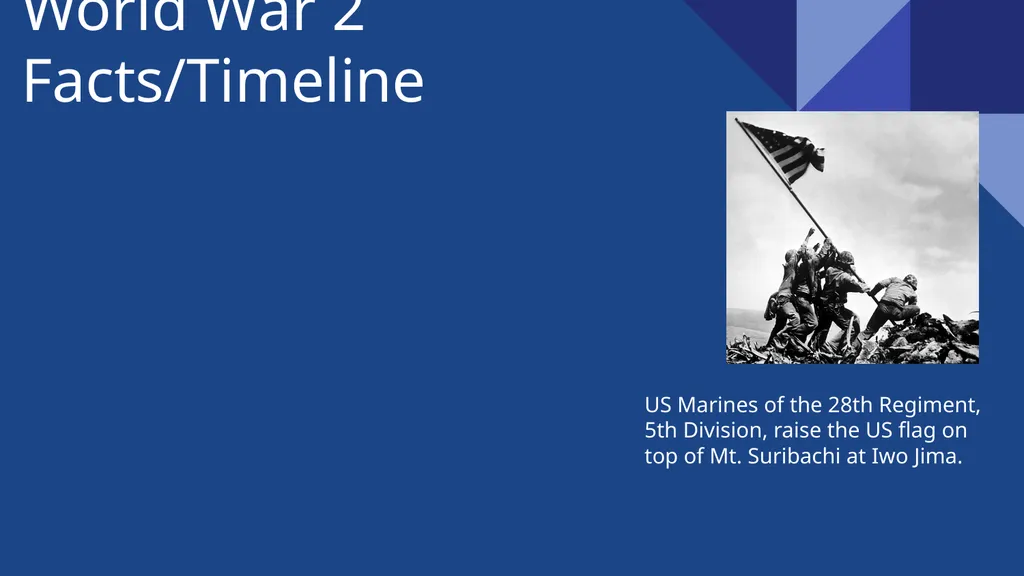
Author : phoebe-click | Published Date : 2025-08-04
Description: World War 2 FactsTimeline US Marines of the 28th Regiment, 5th Division, raise the US flag on top of Mt. Suribachi at Iwo Jima. Fast Facts -The bloodiest battle in this history of the Marine Corps was the Battle of Iwo Jima. Over 27,000Download Presentation The PPT/PDF document "" is the property of its rightful owner. Permission is granted to download and print the materials on this website for personal, non-commercial use only, and to display it on your personal computer provided you do not modify the materials and that you retain all copyright notices contained in the materials. By downloading content from our website, you accept the terms of this agreement.
Here is the link to download the presentation.
"World War 2 Facts/Timeline US Marines of the 28th"The content belongs to its owner. You may download and print it for personal use, without modification, and keep all copyright notices. By downloading, you agree to these terms.













